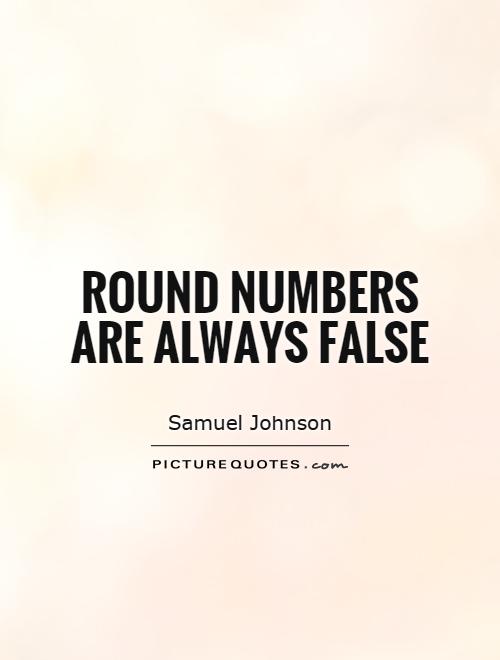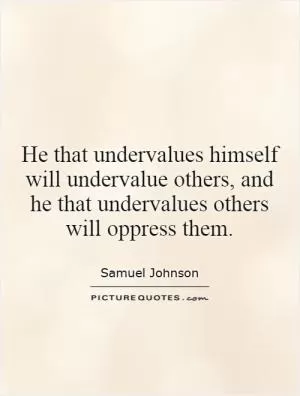Round numbers are always false

Round numbers are always false
In the context of Samuel Johnson, the statement "Round numbers are always false" can be interpreted in a variety of ways. Johnson, a renowned English writer and lexicographer, was known for his wit, intelligence, and skepticism towards commonly held beliefs. He was a master of language and rhetoric, often using his words to challenge conventional wisdom and question the validity of widely accepted ideas.When considering the idea that "Round numbers are always false," one could argue that Johnson would have been inclined to agree. Johnson was a stickler for accuracy and precision in language, and he would likely have viewed round numbers as imprecise and lacking in detail. In his famous dictionary, Johnson meticulously defined thousands of words with precise meanings, demonstrating his commitment to clarity and specificity in language.
Furthermore, Johnson was known for his critical thinking and skepticism towards simplistic explanations. He would have likely questioned the validity of round numbers as being too easy and convenient, preferring instead to delve deeper into the complexities and nuances of a subject. Johnson believed in the importance of thorough examination and analysis, and he would have likely viewed round numbers as a shortcut that oversimplified the truth.
Additionally, Johnson was a keen observer of human nature and behavior, and he understood the tendency for people to rely on generalizations and stereotypes. Round numbers can be seen as a form of generalization, reducing complex data or information into easily digestible chunks. Johnson would have likely cautioned against the dangers of relying on such oversimplifications, urging people to seek out the full truth and avoid falling into the trap of false assumptions.












 Friendship Quotes
Friendship Quotes Love Quotes
Love Quotes Life Quotes
Life Quotes Funny Quotes
Funny Quotes Motivational Quotes
Motivational Quotes Inspirational Quotes
Inspirational Quotes